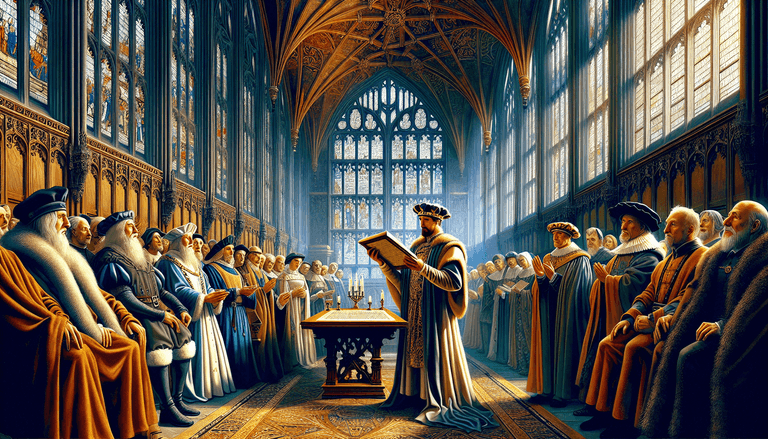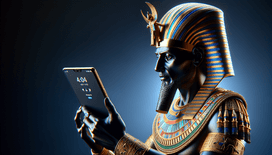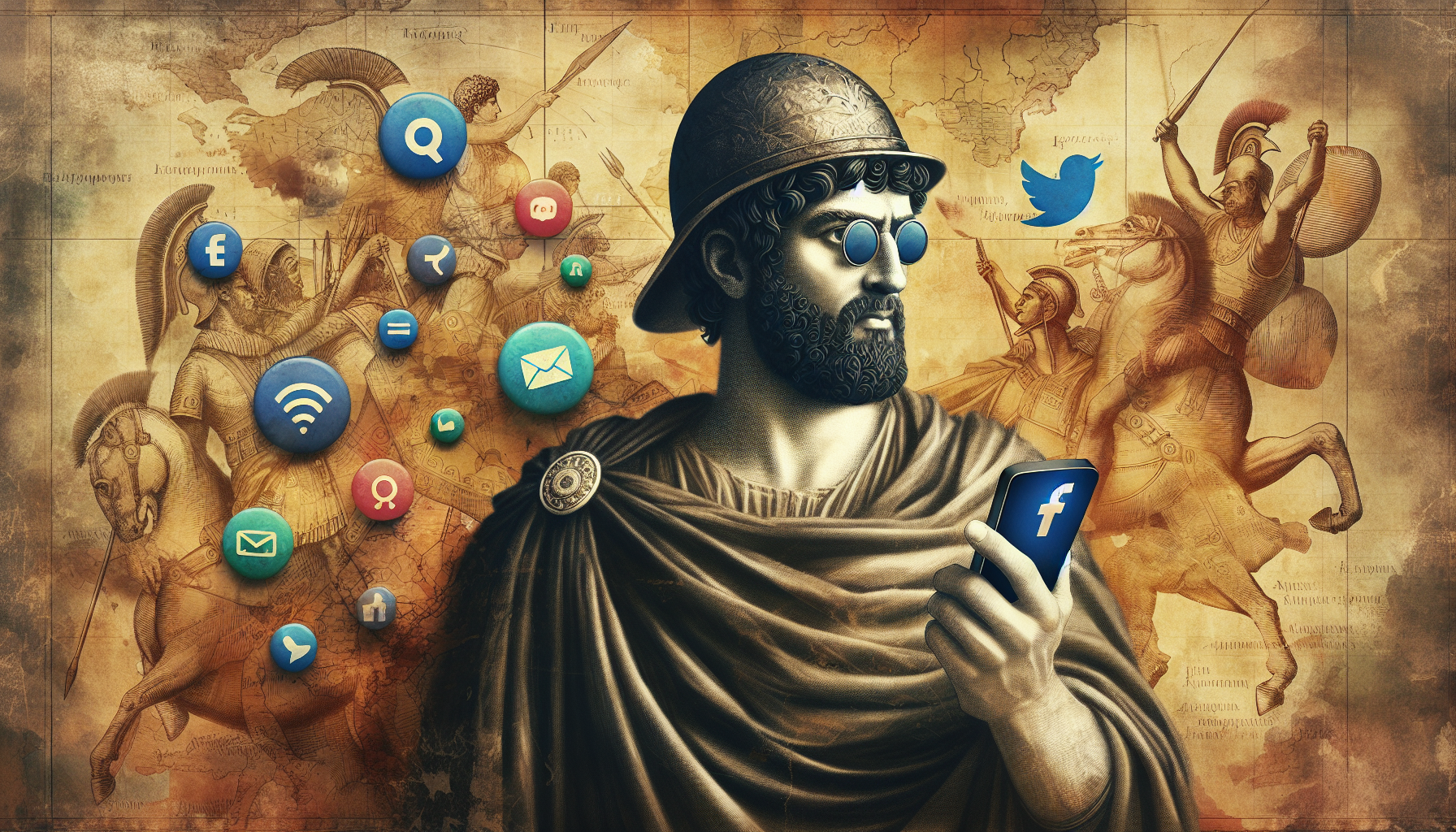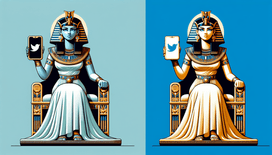The year is 1215. Picture a medieval courtroom where nobles wear expressions as grim as their chainmail, waiting to corner King John into signing what would become one of history’s most fundamentally democratic documents: the Magna Carta. Little do they know, King John has a secret weapon tucked in his royal codpiece: an AI assistant, affectionately nicknamed Sir Bot-a-Lot, ready to advise at a moment's notice.
The Royal Rap Battle
As tensions rise in the cluttered hall, the barons rattle off their list of demands, echoing through the buttressed chamber like a particularly ambitious pre-tweet storm. King John, however, is unperturbed. He discreetly asks Sir Bot-a-Lot, "How do I respond to this barrage of noble nudging?"
In a flash of virtual enlightenment, his AI murmurs, "Sire, the key to this kerfuffle is compromise and a bit of performance prowess. Might I suggest a battle of the rhymes? You know how these nobles are, it could be quite the musical distraction!"
The king's eyes sparkle. "A rap battle it is," he declares. Although rapping may not have caught on in medieval England, King John is, thanks to Sir Bot-a-Lot, about to make it a thing – eight centuries before its time.
An AI Direct Line to Council Wisdom
Intrinsic to King John's AI is a magnificent algorithm capable of swiftly summarising and analysing information from historical tomes, albeit imaginarily downloaded. Instead of relying on his faltering memory or a dubious jester's advice, John turns to Sir Bot-a-Lot for quick round-ups of the latest courtly gossip (“Rumour has it, Sire, Earl Geoffrey has a penchant for pies”) and ancient legal wisdom.
When John queries the AI on negotiating rights of habeas corpus, Sir Bot-a-Lot provides a succinct summary: "It means 'bring forth the corpus' or the body, Sire, which in this case refers to transparency and accountability, not last night's mutton, mind."
Council Discord Group: Digital Negotiations
In lieu of lengthy discussions that require much parchment and quill, King John spontaneously forms a digital community of nobles on Council Discord, an app built into Sir Bot-a-Lot. They're now able to debate points without stepping foot into the blazing heat of a plaza, it's all done with the neat tapping of fingers on medieval keyboards.
Noblemen like Baron Fitzwalter take to it unbelievably well, hammering out disagreements as easily as he would swing a sword, yet without leaving his turret. In record time, a consensus eagerly awaited by all (in between GIF trades of kittens wielding swords) is reached.
The Magna Carta Agreed, With a Twist
Ultimately, an overwhelmingly digital King John, encouraged by his AI, signs a magnum opus of governance dotted with humorous asides courtesy of Sir Bot-a-Lot. Segments of the document might now read a tad unconventional:
- No free man shall be seized or imprisoned: Unless they leave an unscheduled update, courtesy of Sir Bot-a-Lot, to wait too long!
- To none will we sell, to none deny or delay right or justice: And all shall have free access to the Council Discord, unless they flunk out due to non-witty posts.
The barons agree to uphold this newfangled charter, which, beyond the standard legal bindings, extols the virtues of communication technology far beyond their time. As King John gloats in smug triumph, Sir Bot-a-Lot proudly updates his medieval database with this fresh digital spin on history, and everyone, including your humble blogger, wonders if this AI revolution truly belonged in the thirteenth century all along.
In this version of history-twisting grandeur, the Magna Carta isn't just a cornerstone of democratic rights but a testament to what one can achieve with a bit of technological illusion, and a sprinkle of digital delusion!







